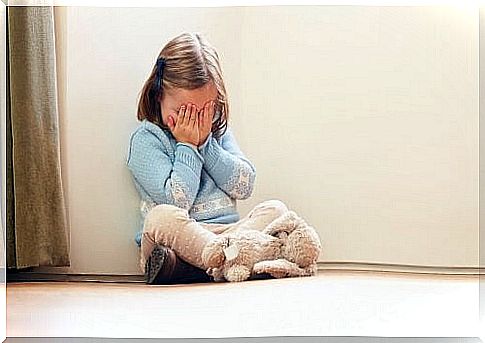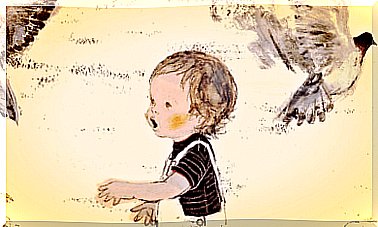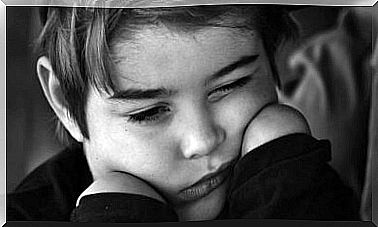The Concept Of Death In Children: Help To Face It
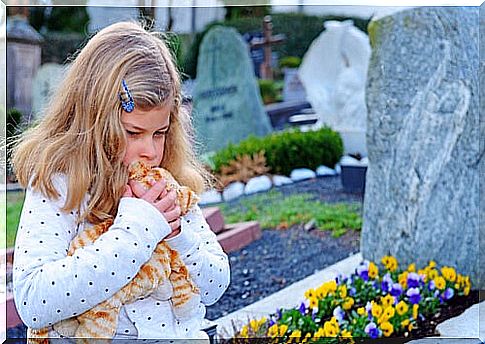
Evidence shows that a child discovers death from a young age, understands that life ends sometime and, as a consequence of this discovery, suffers a situation of anguish. Therefore, the concept of death in children must be internalized as soon as possible.
From this moment on, one of the most important tasks of his development will be to know how to cope with this anguish: making him see the objective reality of death and altering this experience to make it easier. Otherwise, myths of immortality will arise and your inner reality will be altered.
Tips for telling your child about the death of a family member
In these difficult times, it is important to know what guidelines to follow to communicate the news to the child:
- Promote above all the safety of the child, and even more when the deceased is one of the pillars of the family. In these cases (especially if it is one of the parents), in addition to experiencing deep sadness, the child will be concerned about what could happen if the other piece is missing.
- You should never lie to him. A very common way of introducing the concept of death to children is to use a metaphor that compares it to a journey. This will create false hopes that the deceased will one day return. Nor should death be related to diseases to prevent the child from associating these two facts and being afraid of dying every time he or his family members become ill.
- You have to let the child express his sorrow. In childhood this feeling is expressed through anger and tantrums. Faced with these, it will be necessary to remain calm, dialogue and understand the bad time they are going through.
- It is necessary to always answer the child’s questions. You should avoid changing the subject so as not to promote taboos and that the child believes that the adult does not care about their concerns.
- You do not have to answer them with lies or try to make up reality to protect them. You just have to be especially careful with the words we use and talk a lot with them so they can understand and naturalize it. The truth will always be ahead, but without drama that can damage your sensitivity. It is a mistake to think that children are not prepared to deal with certain situations.
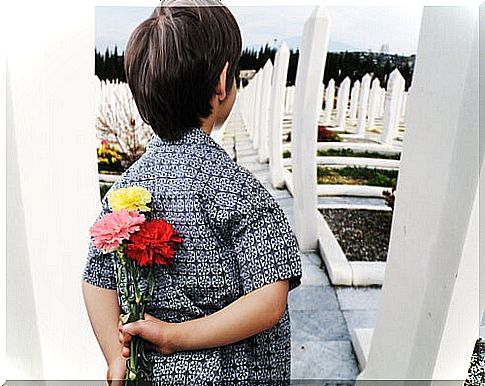
Child mourning: one step ahead of death
Child grief depends on many factors such as age, closeness and relationship of the child with the deceased person. Also the cause and time of the disease. From a certain age, it is advisable to go to the hospital to say goodbye to your loved one, as long as their parents know how to prepare them for what they will find and their possible reactions.
As guidelines for talking with children about the death of a loved one, although it is as difficult as it is painful, it is best to do it soon and just after the first few hours. You can find a suitable time and place to explain what happened in a truthful, simple and sincere way.
Likewise, allowing the child to attend and participate in the funeral can be of great help in understanding and accepting death and accessing the grieving process in better conditions. If the parents are too affected, it is convenient that a relative or friend of the family takes care of him during the acts.
Once again, we will insist on the importance of being physically and emotionally close to the child and helping him so that he can express himself, tell what he feels or remember pleasant moments lived with the deceased person.
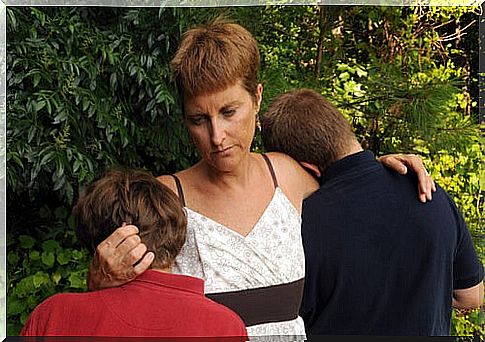
Scientific studies on the concept of death in children
Studies on the concept of death in children are especially diffuse and most of the research is in very old publications.
From the perspective of developmental psychology, Jean Piaget emphasizes that the child does not have a wide repertoire of language and capacity for abstract thinking. This is an obstacle for adults to be able to understand what their inner experience is.
From Sigmund Freud’s perspective, the child does not realize the true implications of death. This author wrote that death did not have great importance in the psychological development of children.
John Bowlby, for his part, was the pioneer of the Attachment Theory. This explains that children under the age of ten do not fear death, that this fear appears later and that it is learned as time passes. The beginning of this feeling is related to the concept of separation, according to this specialist.
Finally, and as a generalization on the part of scholars and researchers, they agree that there is a certain omission of fear of death. For Irvin D. Yalom the reason is that there is a process of repression derived from the universal tendency of humanity to deny death.
Death is just a stage in our lives that we should not fear. It is necessary to try to naturalize it from the first moment to instill the concept of death in children for what it truly is: the inevitable end of life.
